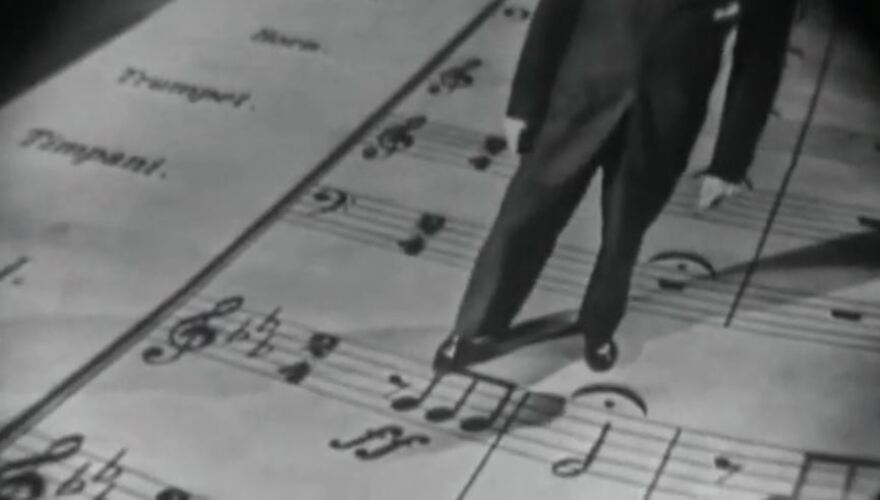For more than a decade, brought young people to classical music through his televised Young People's Concerts with the . But before that series, Bernstein was a fixture on the major network TV series Omnibus.
Hosted by Alistair Cook, Omnibus aired from 1952 to 1961. The show was created to bring fresh ideas and experiences to the public by way of interviews with artists and other thinkers, performances, demonstrations and feature stories.
Omnibus segment topics were diverse, and the list of celebrities who appeared on the program reads like a Who’s Who — swimmer Esther Williams, dancer-choreographer Agnes de Mille and writer and Columbus native James Thurber — among others.
Bernstein joined that list when, on Nov. 14, 1954, he made his first Omnibus appearance with a now-famous exploration of Beethoven's Fifth Symphony.
On a set decked out with a giant reproduction of the first page of Beethoven's iconic score, Bernstein and assisting musicians literally stepped into the score of Beethoven’s Fifth, taking millions of viewers with them.
From 1954 until his final Omnibus episode in 1960, Bernstein pulled back the curtain on music, revealing the inner workings of symphonies and operas and demystifying specialized musical terminology, like "motive" and, as in this 1956 episode, "recitative:"
Four million people watched the first season of Omnibus. That number grew to 5.7 million people at the height of the series' popularity in 1957.
Bernstein brought his Omnibus experience with him when he took over for Dimitri Mitropoulos as the sole music director of the New York Philharmonic in 1958.
His first concert in that role was also the first of his Young People's Concerts to be televised live. That series ran from 1958 to 1972 on CBS and on networks in forty other countries.
Leading up to the 100th anniversary of Leonard Bernstein's birthday on Aug. 25, 2018, Classical 101 is celebrating on air and online.




